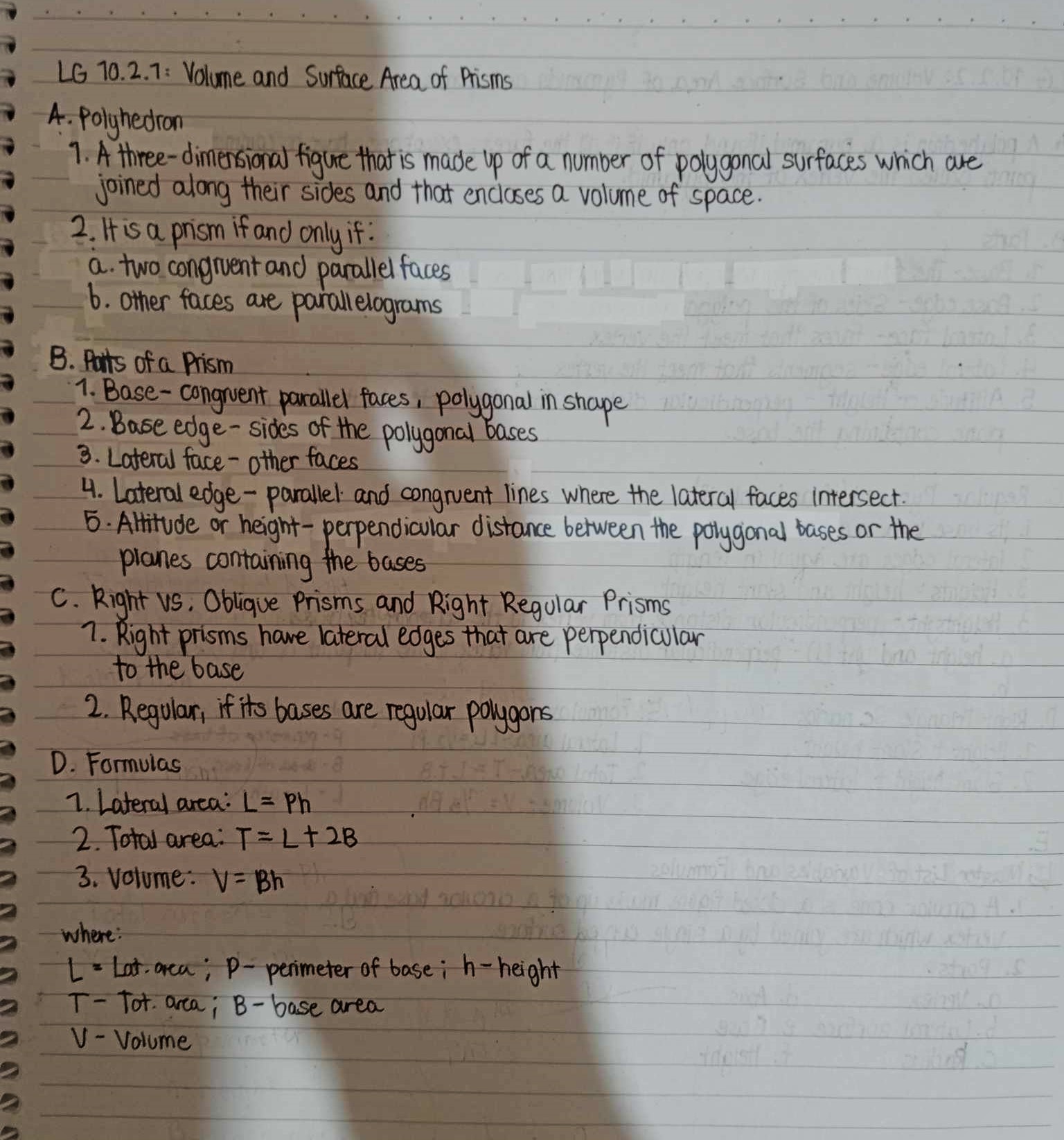What are the properties and formulas for calculating the volume and surface area of prisms?

Understand the Problem
The question appears to outline the properties and formulas related to the volume and surface area of prisms, including definitions of polyhedra, parts of a prism, and distinctions between right and oblique prisms.
Answer
Volume: V = Bh; Surface Area: T = Ph + 2B.
The volume of a prism is calculated using the formula V = Bh, where B is the area of the base and h is the height. The surface area is given by T = Ph + 2B, where P is the perimeter of the base.
Answer for screen readers
The volume of a prism is calculated using the formula V = Bh, where B is the area of the base and h is the height. The surface area is given by T = Ph + 2B, where P is the perimeter of the base.
More Information
In prisms, two opposite faces are identical polygons, and other faces are parallelograms. Right prisms have perpendicular lateral edges to the base, while regular prisms have regular polygon bases.
Tips
Ensure to correctly calculate the base area and height for accurate volume. For surface area, remember to include all face areas.
Sources
- Volume and Surface Area of a Prism - Cuemath - cuemath.com
- Volume and Surface Area of a Prism - Mometrix - mometrix.com
AI-generated content may contain errors. Please verify critical information